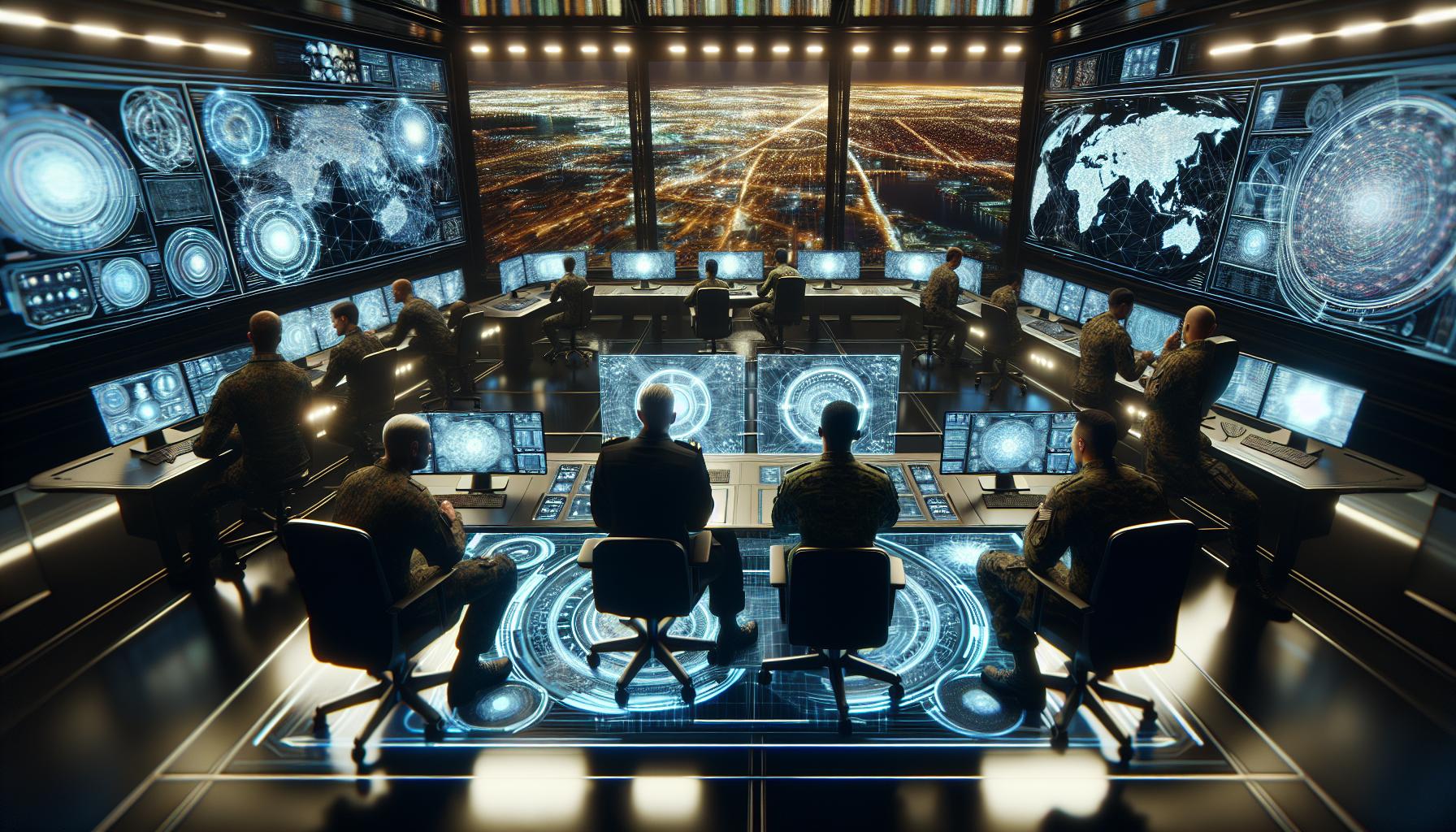China and Russia Agree to Coordinate on Military Use of AI
Amidst growing tensions with the United States, China and Russia have taken a significant step towards strengthening their coordination on the military use of artificial intelligence (AI). Both countries have agreed to consult and coordinate with each other on this emerging technology, which is becoming a new frontier in their rivalry with Washington. The development came during talks between departmental officials from China and Russia in Beijing on Thursday.
In a joint statement, the Russian foreign ministry highlighted the two countries’ agreement to step up coordination under the Group of Governmental Experts (GGE) of the States Parties to the Convention on Inhumane Weapons on Lethal Autonomous Weapons Systems (LAWS). This move signifies the closeness of the Russian and Chinese approaches to the issue, as acknowledged by the Russian statement.
While the Chinese statement did not explicitly mention military use of AI, it did state that consultations were held over “outer space security, biosecurity, and artificial intelligence” – highlighting the importance of these emerging technologies in defining future geopolitical rivalries.
International Norms for AI Still Undefined
The coordination between China and Russia adds another layer of complexity to the international discussions surrounding the military use of AI. Currently, major world powers like the United States, China, and Russia are investing heavily in AI technology. However, there are no agreed-upon rules for its use, particularly in military applications.
In this context, Washington had launched the Political Declaration on the Responsible Military Use of Artificial Intelligence and Autonomy a year ago, in an effort to set international norms. However, while the declaration has been endorsed by 46 countries, including US allies and partners, China and Russia have not signed on.
China has even launched its own Global AI Governance Initiative, urging major powers to adopt a “prudent and responsible attitude” towards the military use of AI technologies. The lack of consensus among major powers poses challenges in establishing a legal and diplomatic framework for AI use.
Artificial Intelligence and the Changing Landscape of Military Applications
The rapid advancements in AI technology have led to its increasing integration into various military applications. This includes tasks such as identifying threats, gathering intelligence, guiding combat aircraft and vehicles (manned and unmanned), and cyber and information operations. AI has further been explored in decision support systems to assist commanders in making better and timelier decisions.
As AI continues to transform the military landscape, the discussions and debates surrounding its military applications, particularly lethal autonomous weapons systems, have intensified. In November, the United Nations adopted a resolution for the first time, expressing concerns about the potential negative consequences of autonomous weapons systems on global security and stability. The resolution highlighted risks such as an emerging arms race, lower thresholds for conflict and proliferation, and potential misuse by non-state actors.
The US Takes the Lead in Establishing Norms for AI
While China and Russia have expressed their support for a ban on lethal autonomous weapons systems, the two countries are yet to sign onto international agreements in this regard. In contrast, the United States has been proactive in setting international norms for AI.
Last year, Washington launched the Political Declaration on the Responsible Military Use of Artificial Intelligence and Autonomy, which has seen the endorsement of various US allies and partners, including Australia, Britain, Canada, and South Korea. The declaration calls for the establishment of a new legal and diplomatic framework to govern the responsible use of AI in military applications. However, without the participation of China and Russia, it becomes challenging to establish global consensus and common standards.
Implications for Geopolitical Rivalries and Future Cooperation
The coordination between China and Russia on the military use of AI signifies a closer alignment between the two countries, especially in emerging areas like technology and security. As Beijing and Moscow strengthen their strategic coordination, their collaboration in traditional and emerging areas – ranging from military and foreign policy to space security and critical materials – are expected to deepen. Simultaneously, this development underscores the growing rivalry between China and the United States in technological advancements and military capabilities.
The militarization of AI and the absence of agreed-upon norms further contribute to the complexities and uncertainties surrounding this issue. As major powers continue to invest in AI, ongoing discussions and future cooperation will play a crucial role in shaping the future of AI technology in military applications and ensuring its responsible and ethical use.
Analyst comment
Positive news: China and Russia are strengthening their coordination on the military use of AI, indicating closer alignment and collaboration in emerging areas.
Negative news: International norms for AI are still undefined, posing challenges in establishing a legal and diplomatic framework for its use.
Neutral news: AI’s integration into military applications is rapidly advancing, and debates over its use, particularly lethal autonomous weapons systems, have intensified.
Short analysis: The coordination between China and Russia in AI military use reflects their growing strategic alignment and rivalry with the US. The absence of international norms and consensus among major powers presents challenges in establishing a framework for AI use. Ongoing discussions and cooperation will shape the responsible and ethical use of AI technology in military applications.













